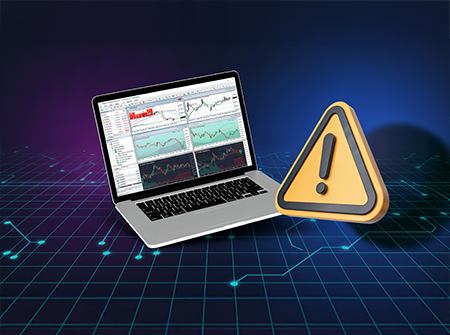Why Risk Management Matters in Forex
Unlike traditional investments such as stocks or bonds, Forex trading is highly leveraged and volatile. Without proper risk control:
- Small mistakes can wipe out your account.
- Emotions take over, leading to irrational decisions.
- Long-term consistency becomes impossible.
Fact: Studies show that more than 70% of retail traders lose money because of poor risk management.
Main Risks in Forex Trading
1. Leverage Risk
Leverage allows traders to control large positions with small capital. While this magnifies profits, it also magnifies losses.
Example: With 1:1000 leverage, a $100 account can control $100,000 worth of trades. A small 1% market move could wipe out your entire balance.
How to Manage:
- Use lower leverage (e.g., 1:100 or 1:200 for beginners).
- Never use your full margin capacity.
- Always calculate lot size with a risk calculator.
2. Market Volatility Risk
The Forex market can move rapidly due to news, economic releases, and geopolitical events.
Example: During US Non-Farm Payroll (NFP), pairs like EUR/USD can move 100+ pips within seconds.
How to Manage:
- Avoid trading during high-impact news if you’re a beginner.
- Use stop-loss orders to limit potential losses.
- Stay updated with an economic calendar.
3. Emotional & Psychological Risk
Fear and greed are two of the biggest enemies of traders. Overtrading, revenge trading, or holding losing positions too long are common mistakes.
How to Manage:
- Follow a written trading plan.
- Set daily risk limits (e.g., stop trading if you lose 2–3% of capital).
- Take breaks to reset your mindset.
4. Liquidity & Slippage Risk
In times of low liquidity (such as holidays or off-market hours), spreads widen and orders may not be executed at your desired price.
How to Manage:
- Trade during peak market sessions for tighter spreads.
- Use limit orders instead of market orders when possible.
- Work with a broker that offers transparent execution.
Conclusion
Forex trading offers great opportunities, but without proper risk management it can quickly lead to losses. By controlling leverage, avoiding overexposure during volatile events, and keeping your emotions in check, you increase your chances of long-term success.
Next step: Learn how to build a trading plan and practice with a demo account before going live.
Read next: Forex Money Management – The Secret to Lasting Profitability




